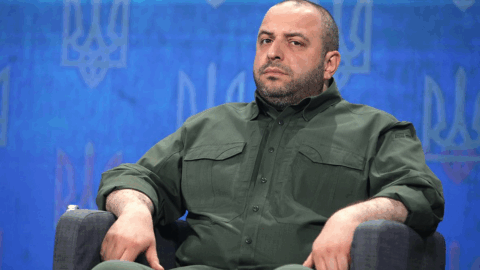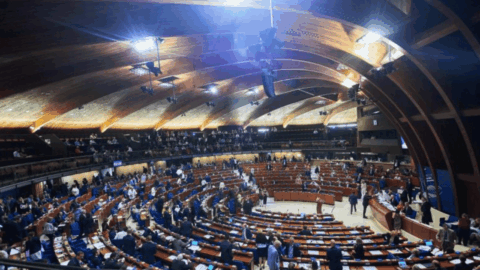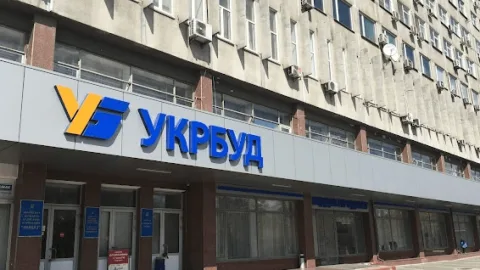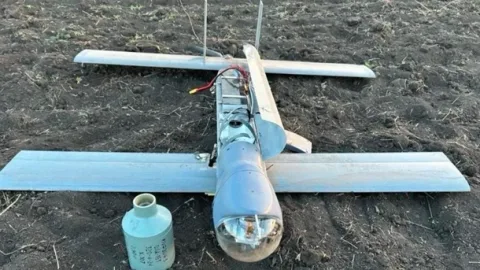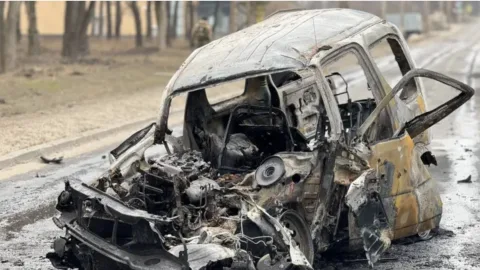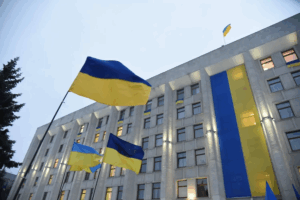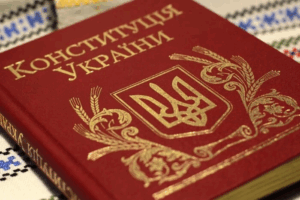As reported by the Anti-Corruption Action Center, 126 Members of Parliament (123 of whom are from the “Servant of the People” fraction) have registered draft law No. 13423, which effectively proposes to introduce an amnesty for crimes committed during the execution of defense contracts.
The MPs propose to eliminate criminal liability for all types of crimes if: (1) the crime is committed during the execution of a defense contract, and (2) it is committed by an official of a company included in a special list of defense industry enterprises.
The list of such enterprises will be approved by the Ministry of Defense. This list will be closed to the public. Meanwhile, according to recent budget amendments, the defense procurement budget this year may reach 750 billion UAH.
The draft law also stipulates that the National Anti-Corruption Bureau of Ukraine (NABU) and the Specialized Anti-Corruption Prosecutor’s Office (SAPO) will no longer be able to investigate abuses in the defense sector. Investigations and investigative actions concerning enterprises on the Ministry of Defense’s list will only be allowed with the approval of the Prosecutor General.
“Draft law No. 13423 effectively legalizes corruption in the defense sector — specifically for a pre-approved circle of suppliers to the Ministry of Defense. Currently, arms contracts are being awarded to individuals closely connected to Zelensky’s inner circle, such as Tymur Mindich. First, you pay to ‘get into’ the list of these suppliers, buy yourself immunity, and then you can inflate procurement prices even a hundredfold — without any risk. It will be impossible to punish those involved in weapons procurement schemes, even after the elections,” said Olena Shcherban, Deputy Executive Director of the Anti-Corruption Action Center (AntAC).
Who could avoid punishment under draft law No. 13423?
If draft law No. 13423 is supported by the full Verkhovna Rada and enters into force, those involved in schemes related to weapons supply could escape accountability — provided their enterprises are included in the Ministry of Defense’s list. Among them:
- Leonid Shyman, director of the Pavlohrad Chemical Plant, and others involved in the case concerning the supply of defective mines to the Armed Forces of Ukraine;
- Oleksandr Liyev, former head of a Defense Ministry department, and officials from Lviv Arsenal LLC, who are involved in a case regarding the embezzlement of 1.5 billion UAH during ammunition procurement;
- Individuals under investigation by NABU and SAPO in a criminal case concerning the embezzlement of funds during the procurement of reactive armor elements for Ukrainian armored vehicles, which caused losses of 7.3 million UAH to the state (the case has already been referred to court).
Detailed legal aspects of Draft Law No. 13423
Draft Law No. 13423 proposes:
- To introduce a new article in the Criminal Code of Ukraine (No. 43-2), according to which the actions of officials of defense industry enterprises (DIE) are not considered criminal offenses, even if they formally contain signs of a crime, if such actions were aimed at “fulfilling a state contract” and had a “socially useful purpose.”
- To exempt unscrupulous weapons suppliers from liability “retroactively”: even if the offense occurred before the enterprise was included in the List of DIE, but during martial law — no liability arises if the act was “for the purpose of fulfilling the contract.”
- To create an “immunity” for DIE enterprises: legal entities are not subject to criminal law measures throughout their entire period of being on the Ministry of Defense List — even if the actual circumstances of the violation occurred earlier.
- To introduce exclusive control by the Prosecutor General:
Only the Prosecutor General can enter information into the Unified Register of Pre-Trial Investigations (URPI) regarding such offenses.
The Prosecutor General has exclusive authority to authorize notices of suspicion, detention, arrest, searches, temporary access, removal from office, etc. Any court petitions are considered only after his approval.
- To implement a special regime for years ahead: this regime will apply not only during martial law but also for three years after its termination.
What are the risks of the draft law?
1. Absolute concentration of powers in the hands of the Prosecutor General. This creates a manual, discretionary system of accountability, politicizes all investigations of abuses in the defense industry complex (DIE), and undermines guarantees of investigative independence.
2. Legalization of impunity under the guise of contracts. The proposed model allows any actions to be declared “non-criminal” if the executor provides any evidence that they were necessary for the defense order. For example, purchasing equipment at prices many times higher than the market rate, with funds diverted to controlled companies even amid obvious conflicts of interest, could become “legal” — since the funds were paid to fulfill the contract and the equipment delivery, in any case, contributes to strengthening defense capabilities.
3. Lack of objective criteria for actual amnesty in such crimes. Categories like “socially useful purpose” or “strengthening defense capacity” are rather debatable and lack clear definitions, shifting the burden of proof to the prosecution to demonstrate that the committed act not only contained the elements of a crime but also in no way contributed to strengthening defense capacity. Combined with the exclusive role of the Prosecutor General, this turns the provisions into tools for selective law enforcement.
4. Retroactive immunity. If an enterprise is included in the Ministry of Defense List after committing an offense — all prior actions, even clearly criminal ones, are effectively amnestied if they can be formally linked to a defense procurement contract during martial law.
5. Difficulty in qualifying the actions of accomplices. Investigations of violations in defense procurement often involve cooperation with Ministry of Defense officials, other civil servants, or even military officers. However, if the main act is not considered a criminal offense, it becomes practically difficult to qualify the actions of scheme participants.
6. Excessive concentration of powers in the Ministry of Defense. The Ministry effectively becomes an authority capable of granting immunity from criminal prosecution for abuses. Considering that the Ministry of Defense is responsible for defense policy and budgeting, this creates excessive corruption risks.
Tags: corruption corruption in Ukraine investigation ukraine defence sector Ukraine government Volodymyr Zelenskyy zelenskyy


